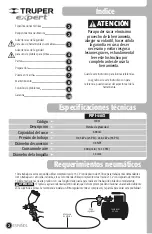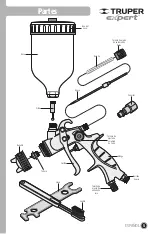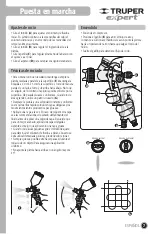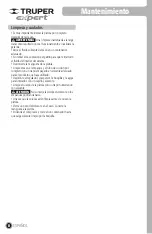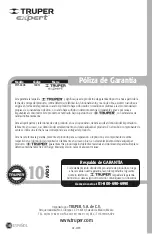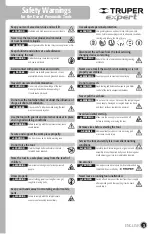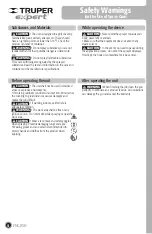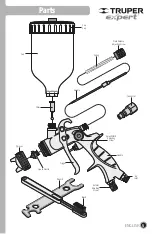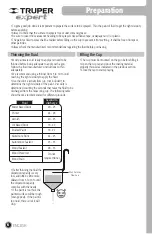
00:20
6
ENGLISH
Preparation
J
• If after thinning the fluid the
dispersion capacity is very
low, add little by little more
dilatant from 5 to 10 % until
the dispersion capacity
complies with the needs.
• If the paint is too thick, the
painted surface will be rough
(orange peel). If the paint is
too fluid, there is risk it will
drip.
Thinning the fluid
• The cup must be mounted on the gun before filling it.
• Open the cup cap and pour the coating material
properly thinned as indicated in the previous section.
• Close the cap to start spraying.
Filling the Cup
• To get a good job done it is important to prepare the surface to be sprayed. Thin the paint of fluid to get the right viscosity
before applying.
• Always confirm that the surface to spray is free of dust, dirt and grease.
• Be sure to cover those areas not needing to be sprayed. Use adhesive tape, newspaper and / or plastic.
• The paint or fluid to spray shall be twirled before filling up the cup to prevent it from settling. It shall be free of lumps or
other particles.
• Always check the manufacturer’s recommendations regarding the fluid before purchasing.
Fluid
Second to
discharge
Water based Paint
Primer
Varnish
Oil Based Paint
Enamel Paint
Aluminum Paint
Automotive Sealant
Wood Sealant
Wood Preserver
Wood Stain
20 - 25
24 - 28
20 - 25
18 - 22
18 - 22
22 - 25
25 - 35
28 - 35
• Most paints are sold ready to apply and need to be
thinned before being adequate to apply with a gun.
Follow the fluid manufacturer’s instructions to thin
adequately.
• We recommend using a thinner from 5 to 10 % until
reaching the right viscosity to apply the fluid.
• Use the din 4 viscosity flow cup (not included) to
determine the right viscosity of the paint. Viscosity is
determined counting the seconds that takes the fluid to be
discharged from the measuring cup. The following table
show the time recommended for different products.
Din 4 Viscosity
Flow Cup
Do not
require thinner
Summary of Contents for 14031
Page 20: ...10 Notes...

